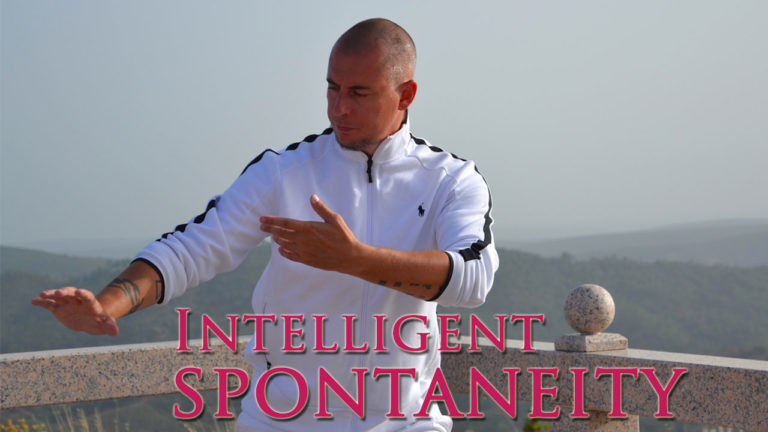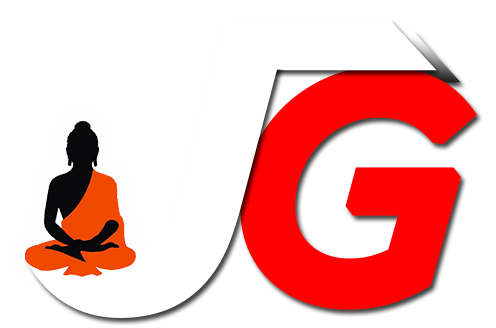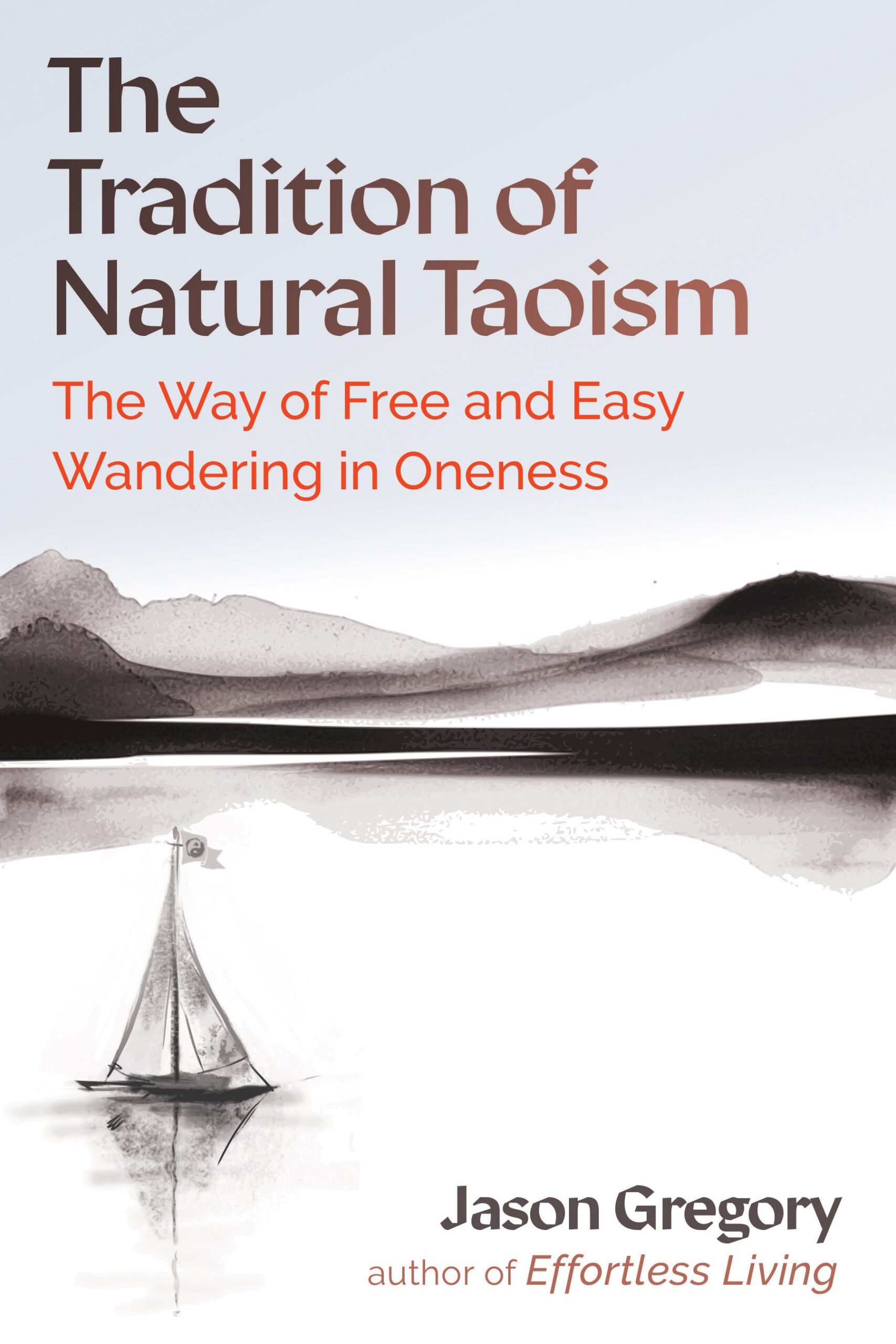Understanding Flow – Part 3 Intelligent Spontaneity

The story of Cook Ting is about how we effectively move through the world with skill and not feel resistance. Reaching your optimal potential is also the same, meaning you attain expert skill in your desired craft and that extends into life in general. This feeling of effortlessness, or flow and wu-wei, is a state of psychological ease we feel through our whole body.
The goal of wu-wei, then, is to effectively move smoothly through all aspects of your life, where even unexpected events in your life are dealt with spontaneously with intelligence. No obstacle is too big or even really perceived as an obstacle anymore. In a state of wu-wei you don’t press up against obstacles, but instead you act in the same fashion as the gentle key trying to open the door, which means you may absorb the pressure of an obstacle but because you don’t resist it you overcome it without forcing the outcome. This absorb and action technique is one of the foundational pillars of traditional martial arts.
Modern martial artists, especially mixed martial artists, often use the word flow. It is used when someone appears to be very lucid and in the zone. Yet, as I mentioned, common understandings of the concept flow are at a novice level and this goes for a lot martial artists. The spontaneous nature expressed through us in a state of wu-wei is the deeper and more powerful raw material of our hot cognition functioning optimally. When there is no interference from the over-analytical cold system, you express the spontaneity of human nature intelligently.
Intelligent spontaneity, then, is a fully embodied state of mind where one is perfectly calibrated to the environment. The environment essentially becomes an extension of your skill. For example, when you are in a state of intelligent spontaneity in martial arts you are perfectly calibrated to the obstacles you face with an opponent. The opponent will try everything to land a blow but you see it almost in slow motion, like Neo in the Matrix. As a result, you act spontaneously without it feeling like a reaction because there was no conscious thought driving it.
And even if you do absorb a blow you move with it, which is a technique in the Korean martial art Hapkido. This technique makes the opponent overextend and lose balance, where they usually fall to the ground. In ancient Chinese thought this approach is explained by the concepts yin which is a Chinese word for the feminine and passive energy of the universe and yang which is a Chinese word for the masculine and active energy of the universe. In Chinese thought yin nourishes yang. This means that when we are intelligently passive, or have poise in other words, we give birth to correct action minus aggression. This is a key point, correct action minus aggression.
We overextend in Hapkido, or in any martial arts and life in general, when we are full of aggression and emotions. Essentially, if we are not receptive enough we will be hard and rigid. And someone hard and rigid is easily overcome by someone who is soft and flexible because they have poise and are fully present in the moment. As Bruce Lee once said, “Be like water my friend.”
This effortless cognitive style is similar to the movements of a graceful dancer. Intelligent spontaneity is not only the effect of a dancer being perfectly calibrated to the environment, but it is also the essential goal of martial arts, or any skill for that matter. In a state of intelligent spontaneity we approach life with a mind of no deliberation. An expert craftsman embodies this effortless state of mind.
The craftsman integrates the two systems into mind-body holism. As a result, they are perfectly adapted to the world around them. But, to cultivate expert skill and skill in life, we have to understand how a craftsman disengages from the cold system to allow the hot cognitive virtues of nature to spontaneously flower.
The expert craftsman is a perfect example of how both systems function together to evoke intelligent spontaneity. Their mind absorbed in their craft is a metaphor for how we too can be absorbed fully in life through a chosen skill. A skilled craftsman’s integration of mind and body back into its original holism is the result of years of training their embodied cognition to be as natural as nature itself. The craftsman moves effortlessly through their skill and this is applied to life in general. When the two systems function naturally in harmony you will be perfectly calibrated to the environment. This integration of both systems means that the mind is embodied and the body is mindful.
To make the two systems integrated and working together harmoniously, we need to develop the ability to concentrate for extended periods of time. This will eventually evoke a deep level of focus that arises from the hot system. A skilled craftsman can evoke this ability spontaneously anytime if it is needed, to the extent that it is as normal as chewing food.
The way the process begins is through the long and arduous training which is required to call on a skill upon command. The process of learning a skill to this heightened degree is dependent on a strong cold system to begin with. A strong cold system is dedicated to the theory of a particular skill and the discipline required for it to become embodied.
We have all tried to get better at something which requires practice every day. Usually we don’t want to use a lot of effort but something inside says “stop being a weakling. Suck it up and push forward.” That inside dictator is of course the cold cognition, and it is a strong cold cognition if the message is taken on board to push forward.
When a craftsman strengthens their cold system and becomes a dedicated student to whatever skill they’re learning, they are ever so slowly downloading the subtle nuances and theoretical details of that skill into their hot cognition. As a result, the skill begins to unconsciously manifest. The hot systems ability to fine tune a particular skill continues when a strong cold system has an iron will to reach beyond the known limits.
As this process of cultivation continues the craftsman invariably encounters an unexpected snag, which is that the cold system begins to inhibit flow states of consciousness. So once a skill has become ingrained in the hot system, the cold system is a hindrance because of its tendency to analyze and over think.
When a skill has become embodied, the primary way to get better is to continually perform that skill through constant repetition. But this cannot happen if the cold system is still functioning, meaning when it is essentially in the way. From a contemporary cognitive science perspective, this is what it actually means when we say we are in our own way, which in their terminology means the cold system is in the way of the hot system naturally expressing itself.
If the cold system cannot be downregulated, it inhibits intelligent spontaneity. The effortlessness in a performance, no matter what it is, is ruined when we begin to over think about what we are doing. As a result, we regress back into mind-body dualism training.
The problem in trying to attain intelligent spontaneity is we don’t know how to temporarily shut down cold cognition. What you need to remember is that when you are fully engaged in what you are doing cold cognition is naturally downregulated because parts of the brain are not activated when they are not necessary. And when intelligent spontaneity comes to life, cold cognition is not activated because it is not part of nature’s spontaneous beauty. But it is not that easy for most of us, especially if you are starting out in a particular skill.
There are numerous methods for downregulating cold cognition, some intentional and others unintentional. For example, alcohol downregulates our cold cognition allowing us to communicate and experience the world authentically with no agenda, well that is up until a certain point when we lose our way and the drunken arguments and fights break out.
Psychedelics and marijuana also downregulate the cold cognition, resulting in different effects to that of alcohol. But these methods I don’t condone, as they are not sufficient methods for downregulating cold cognition nor do they have lasting effects to achieve that end on a regular basis. Intense aerobic exercise also downregulates cold cognition, but the problem with this is you can’t exercise all the time and it doesn’t train the mind outside of utilizing will power.
Meditation is the advanced tool for training your mind to naturally downregulate cold cognition. Specifically vipassana meditation practiced in Theravada Buddhism and open awareness meditation practiced in Zen Buddhism. Both practices train you to perceive reality from that deeper level of focus we usually only attain in a flow state. These practices evoke a flow state of consciousness without intentionally trying to do so.
The practice of open awareness meditation, for example, is an objectless meditation we engage with a simple, stable posture while we try to observe the mind in the hope of silencing and emptying it through focusing on the anchors of breath or by fixing our attention on something in the environment. We don’t need these anchors as much as our practice continues because we begin to embody a more natural effortless state of consciousness, not attracted to the tendency of resistance or force.
This type of meditation, like vipassana, has a positive effect on mental concentration, reaction time, motor skills, and sensory sensitivity to the environment, making it more conducive for intelligent spontaneity. You are essentially tilling the soil in your mind and producing peak performance as a natural result. These two practices will benefit your hot cognitive ability to be effortlessly spontaneous in your skill and life.
When the spontaneity of the hot system is expressed, through a skill or otherwise, cold cognition is downregulated. When skill is ingrained in the hot system we access, more often than not, a deep level of focus where the sense of “you” doing “something” has evaporated. You have merged as one with the activity. There is no distinction between you and your skill, they are one. As a result, you are one with the terrain your skill has to navigate through. This experience is commonly referred to as “being in the zone.”
The real reason you are in the zone is because your cold cognition has been downregulated to let the spontaneous nature of life come alive through you. This is intelligent spontaneity. Essentially, there is no “person” because the cold system has downregulated. Remember the cold system is where we identify with ourselves as a person, just this very small part of brain in the prefrontal cortex. We are much more than that.
So in the experience of intelligent spontaneity we come in contact with a deeper level of existence beneath our personality within our hot system. This deeper level of existence is where the naturalness of life spontaneously arises. This spontaneity arising of itself is the Chinese concept of ziran, which ultimately means nature is fundamentally of itself and your skill can become as nature is if you discover that flow state within your chosen skill. This in turn trains you to extend those skills into everyday life.
Ultimately being in a state of flow is not truly about the aesthetic beauty of the performance, but rather it is about how the discipline trains you to be as nature intended, which transforms your character into becoming more humble, compassionate, and forgiving. This is the end goal of intelligent spontaneity, or flow and wu-wei. Your skill is your second nature in the sense that it is as effortless as opening and closing your hand. You have disentangled yourself from the clutches of rational thinking and become an expression of nature, because that is who you truly are. Now you truly understand what flow is. Now it’s up to you to enter that flow state so you can bring your ingrained skill forth to inspire the world.

